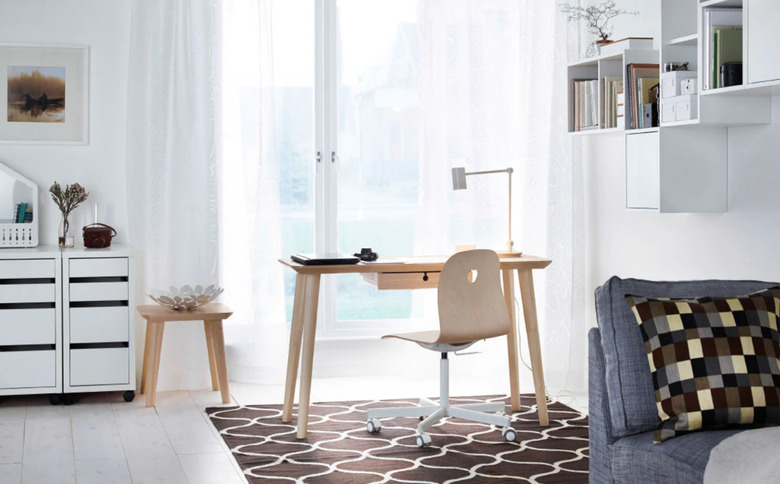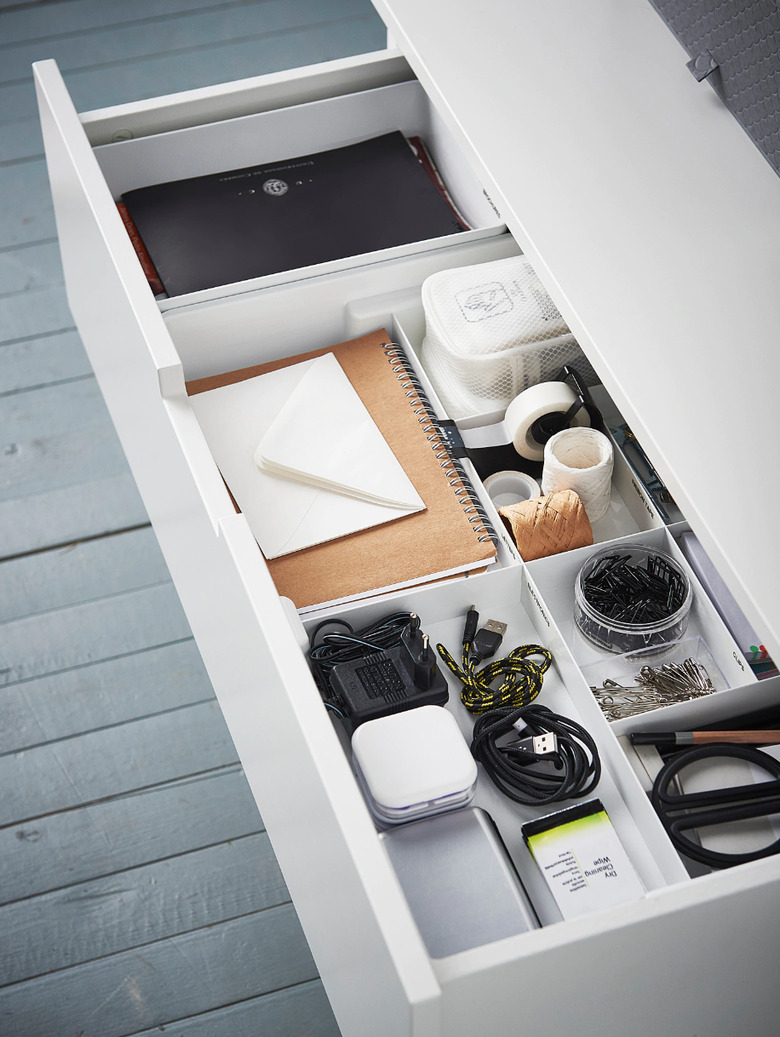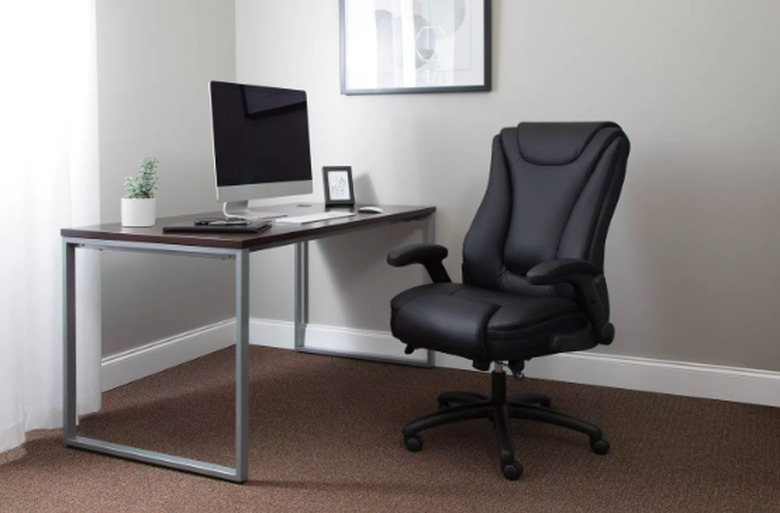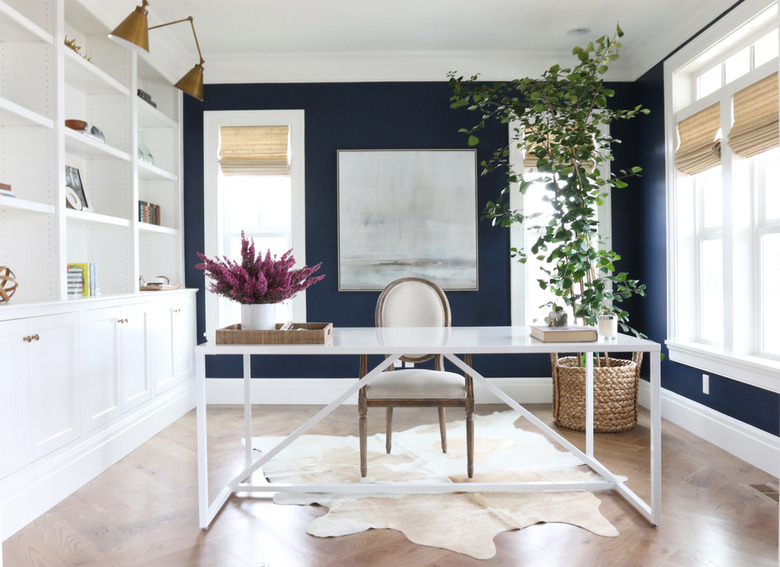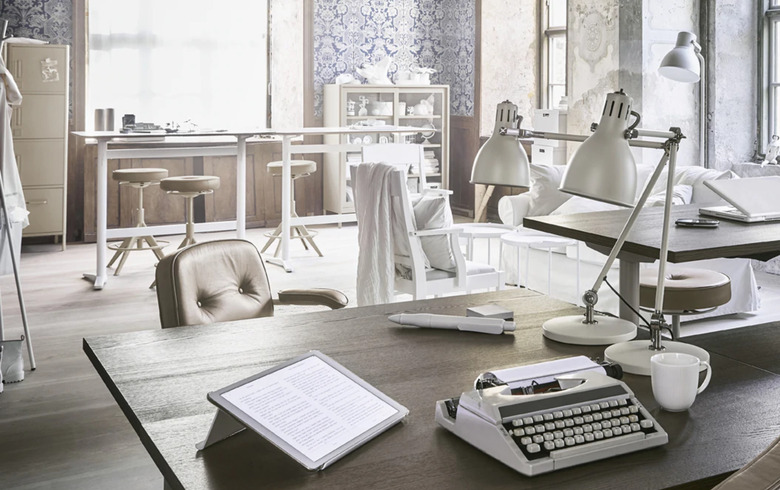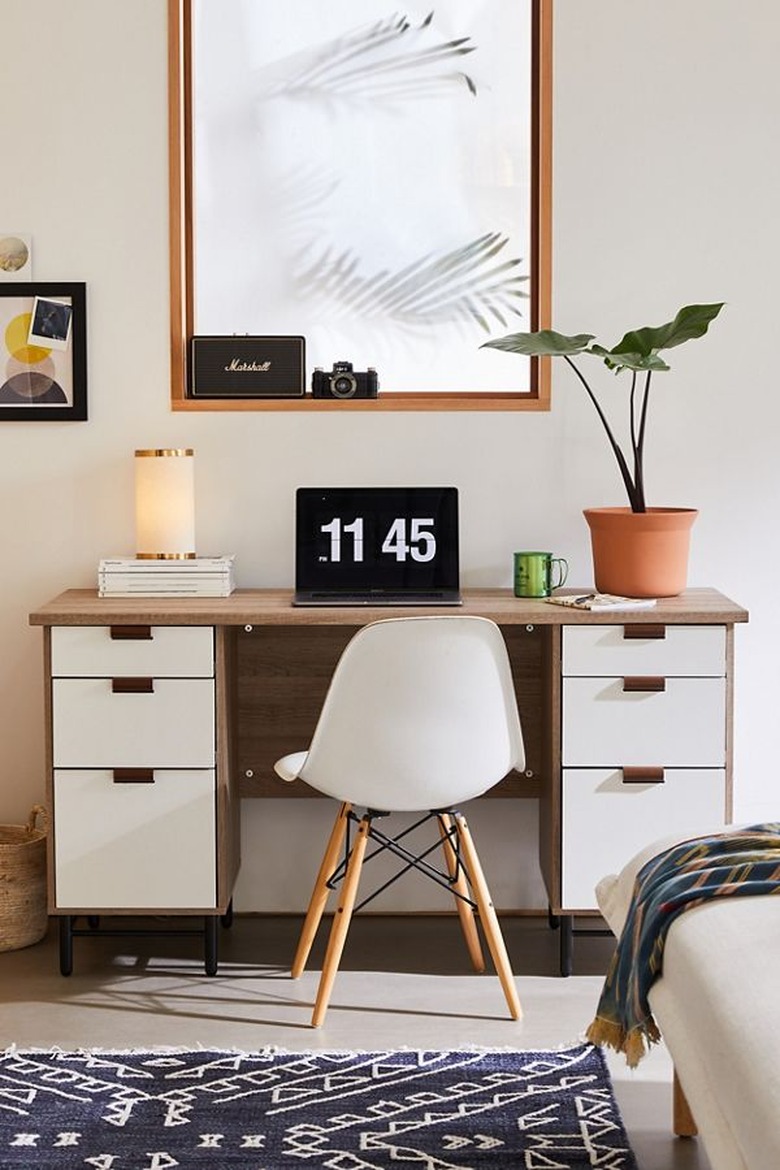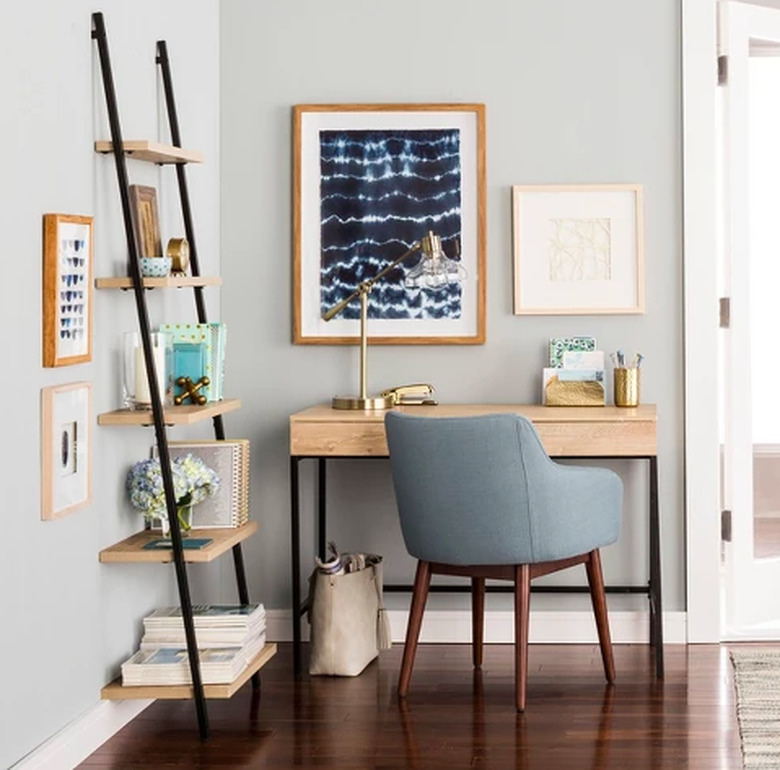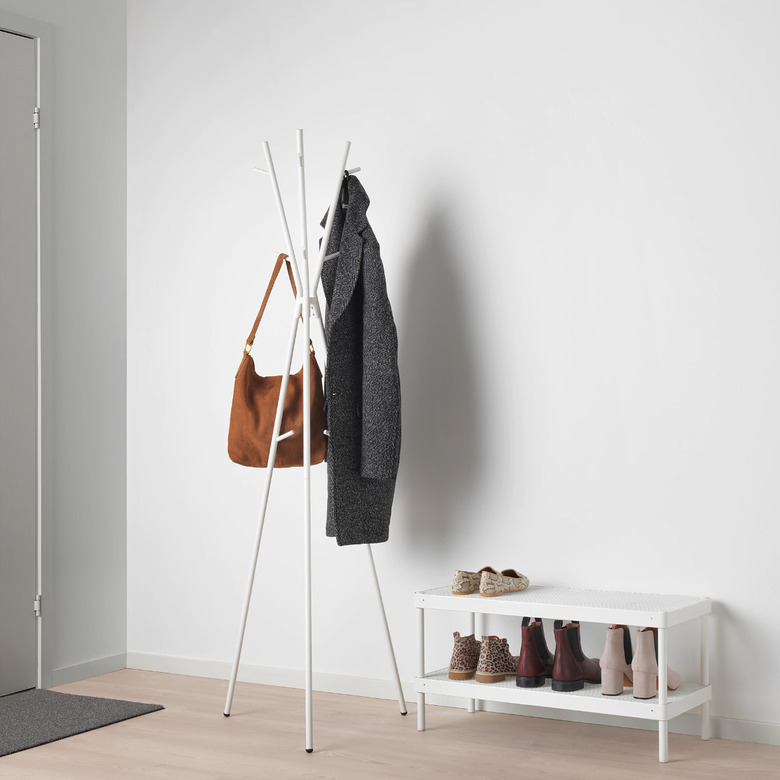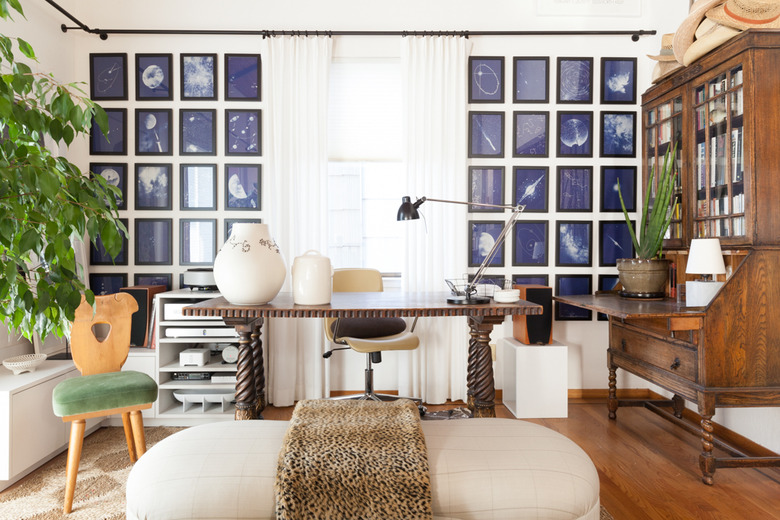Feeling Burned Out? These 8 Small Workspace Changes Can Help
Burnout is an unfortunately common occurrence in today's workforce, whether you work in a formal corporate office, a coworking space, or a home office. Both physical clutter at a desk and emotional clutter in your head can be overwhelming. "In the simplest model, burnout is the feeling that we've depleted our personal agency — our ability to get things done," says Robert L. Bogue, co-author of Extinguish Burnout: A Practical Guide to Prevention and Recovery.
As it relates to the workplace, burnout becomes an issue for a number of reasons. For starters, it can significantly affect your day-to-day mood.
"Primary causes of workplace burnout include feeling overwhelmed by the sheer amount of work, feeling overworked and undervalued, having a lack of control over one's work, and feeling a sense of boredom or psychological disassociation," says Dr. Terrell Strayhorn, a college administrator, social scientist, and president/CEO of Do Good Work Consulting.
In addition to taking the time to incorporate self-care into your daily routine, you can also make small changes to your physical workspace to help alleviate the negative effects of burnout. We spoke to designers, organization experts, and medical advisors about the tweaks you can make in your workspace to decrease the effects of burnout:
1. Get organized.
1. Get organized.
A clean — and chic — workspace is a happy one: "Good organization is key for a seamless workspace, and combining storage and aesthetics is possible," says Rayman Boozer, principal designer of interior design studio Apartment 48.
Organization preferences vary per person, so experiment with different methods to see whether you prefer hanging files or drawers for paperwork. You can also try trays, dishes, or boxes to store office supplies and tuck them out of sight.
Once you've set your organizational routine, be sure to maintain it. "I suggest clearing your workspace and putting everything away at the end of each day so you come back in the morning to a clean workspace, ready to start the day," says Tina Rich of Tina Rich Design.
2. Invest in comfort.
2. Invest in comfort.
As with organizing, comfort depends on the individual. Some workers might feel better with a standing desk rather than an ergonomic chair, while others might opt for additions like a memory foam wrist rest or a heated desk blanket — whatever goes! Given how many hours we spend in our workspace, it makes sense to be as comfortable as possible in order to stay focused.
"Comfort and functionality are key to being productive," says Rich. "You should splurge on an ergonomic office chair so you aren't feeling the effects of sitting at a desk for eight hours."
3. Surround yourself with plant friends.
3. Surround yourself with plant friends.
It's been scientifically proven that greenery is good for your mental and physical health — plants not only contribute to increased productivity and improved concentration, but they also provide fresh air, cleaning out toxins from a room.
But if it's not possible for you to decorate your space with plants, you can actually hack the system. "Designers are incorporating as much real nature as possible whether it's greenery, views to nature, water features, or any other nonrhythmic sensory stimulation that adds dynamic and natural elements to the space," says David Gerson, chief brand officer of Canadian office furniture manufacturer Inscape. "Even simulated nature with wood laminates or fabrics with natural fractal or organic patterns can mimic the positive psychological benefits of actually being in nature."
4. Use a monochromatic color scheme in your decor.
4. Use a monochromatic color scheme in your decor.
Think about the colors at your desk — this might seem trivial, but it can make a big difference.
"To help a space feel more cohesive, create a uniform color scheme, since this has a calming effect on people and allows the mind to relax," says Amber Dunford, lead stylist for decor retailer Overstock. "Color schemes with contrasting colors create more excitement and energy."
5. Try to get as much natural light as possible.
5. Try to get as much natural light as possible.
If you work from home, situate your workspace in a place that gets plenty of natural light — it'll help boost your mood. You might not have much of a say where your desk goes in a company office, but consider bringing your laptop (if you have one) to work in an area where you can get some fresh air.
"If you don't have a window by your desk, find ample opportunities to be outside as much as possible," says Lauren Cook, a doctoral candidate of clinical psychology at Pepperdine University. "Employees can experience depression when they are not exposed to daily light so it may be worth talking to your provider about getting a therapy lamp at your desk to help with this."
6. Add personal touches.
6. Add personal touches.
Don't be afraid to include a bit of your own personality in your office workspace, too.
"You can add a few personal touches to your office, especially pictures you like to look at, so it isn't a sterile environment," says organizing expert Eileen Roth. "What you don't want to do is to clutter the room up with too many personal items. A few personal items can make it more enjoyable when you need an eye break from your work."
7. Hang your coat.
7. Hang your coat.
It's all too easy to just throw your coat wherever is most convenient — like the back of your chair — but that creates a sense of clutter in the office.
"Use small coat closets or dedicated coat racks to prevent the 'garage sale' look many offices adopt when employees toss winter coats on chairs and desks," Boozer says. It's a simple thing, but it does improve the overall aesthetic of a workplace. If your office doesn't have an official place to hang your coats, ask to install one!
8. Make small layout changes to your workspace when you’re feeling stuck.
8. Make small layout changes to your workspace when you're feeling stuck.
If you're feeling like your routine has gotten too monotonous, you can spice things up by rearranging your space.
"Switch things up, make small changes that break up the rounding and improve your efficiency," says Strayhorn. "For instance, move your computer monitor to another side of your desk."
